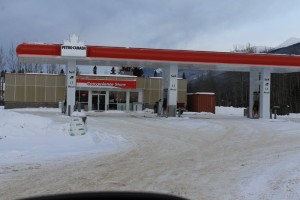How Gas Formulated for the Seasons Affects Your Car & Wallet
No one needs to spell out the differences between summer and winter driving. However, how many of you know that there’s a difference between gas in the winter and gas in the summer? A good number of you do, perhaps having heard it from a friend or actually noticing the contrasts through your own observations (ie. frequency you have to fill up, performance). And then there’s the rest of you who are learning about this for the first time. If it’s new to you, it’s good to know why fuel quality (and even quantity) varies throughout the seasons, and how it can affect your drive.
a difference between gas in the winter and gas in the summer? A good number of you do, perhaps having heard it from a friend or actually noticing the contrasts through your own observations (ie. frequency you have to fill up, performance). And then there’s the rest of you who are learning about this for the first time. If it’s new to you, it’s good to know why fuel quality (and even quantity) varies throughout the seasons, and how it can affect your drive.
Oil quality is the outcome of your season
 The line between winter and summer-blend fuel rests in their composition. Reid Vapor Pressure (RVP), the measure of how easily gas evaporates at a certain temperature, differs among the two blends of fuel. Gas that has a higher RVP (making it more volatile), evaporates easier, whereas gas with lower RVP, evaporates slower. With that clarified, you’re probably wondering the measure of the two blends.
The line between winter and summer-blend fuel rests in their composition. Reid Vapor Pressure (RVP), the measure of how easily gas evaporates at a certain temperature, differs among the two blends of fuel. Gas that has a higher RVP (making it more volatile), evaporates easier, whereas gas with lower RVP, evaporates slower. With that clarified, you’re probably wondering the measure of the two blends.
Here it goes: Winter gas blends have a higher RVP, while summer fuel has a lower RVP. The reason why winter blends have a higher RVP (evaporates easier), stems from the need to withstand low or freezing temperatures that can make it difficult for your car’s engine to work properly. Summer gas, on the other hand, has a lower RVP (doesn’t evaporate as easy) to prevent excess evaporation which often takes place in warmer temperatures, leading to the release of unhealthy emissions.
The switch between summer and winter blends takes place bi-annually – once in the fall for winter gas, and once in the spring for summer gas. It’s a heavy duty task, and has often been cited as the reason why gas prices tend go up at times (such as the spring). With that said, there’s a lot of controversy surrounding this since many believe it’s just a ploy to take more money from consumers.
How Does this Affect Your Wallet?
Knowledge about fuel blend differences can help you in a game of trivia, but there are practical reasons to possess this info  as well. The biggest reason is how it affects your wallet. After all, gas is one of the considerable (and eye-rolling) costs involved with car ownership. With what we’ve discussed so far about summer and winter blends, you might wonder why they differ in terms of price.
as well. The biggest reason is how it affects your wallet. After all, gas is one of the considerable (and eye-rolling) costs involved with car ownership. With what we’ve discussed so far about summer and winter blends, you might wonder why they differ in terms of price.
Summer is far gone, undetectable in the rearview, and winter is here, even if it doesn’t feel like it (depending on where you live). So that leaves winter prices in the foreground. How do fuel prices look from December to March?
Fuel prices may plunge or skyrocket at anytime – often due to “oil speculation” (ie. world events, industry standards) – so high or low prices may occur at any point in time. However, prices tend to be a bit higher in the summer months, which is good news considering we’re at the year’s end. Winter gas blends are cheaper to produce, because they don’t have the oxygenates found in summer blends (which is used to make summer fuel burn cleaner). Additionally, the production of summer gas blends requires refineries to shut down for a bit, which too, affects the supply and demand chain.
However, gas consumption in the winter can actually work against your wallet. The fuel itself may be cheaper, but the winter season can affect fuel efficiency in various ways. In an effort to stay warm and safe, you have the defroster, heater and heated seats turned on – all of which use gas. Your car itself is also under more pressure. Engines and batteries have to work harder in cold temperatures, leading to fuel wasting, and low tire pressure also adds to the drag. So yes, the gas itself costs a little less, but the season may force you to use more of it. Winter – it’s a season of contradictions.
Fuel for the Mind & Savings
There’s a lot more to gasoline than you may realize. It’s not merely mined out of the Earth, shipped to your nearest gas station, and sold for a price you rarely appreciate. It’s formulated to withstand seasonal changes, and help your car perform at its best. A lot of science goes into this stuff. However, apart from knowing the chemistry of what makes winter gas different from summer fuel, you can use this knowledge to reduce your expenses at the pump this winter season (and all winters to come). And let’s be honest, who doesn’t want to save money on gas?






